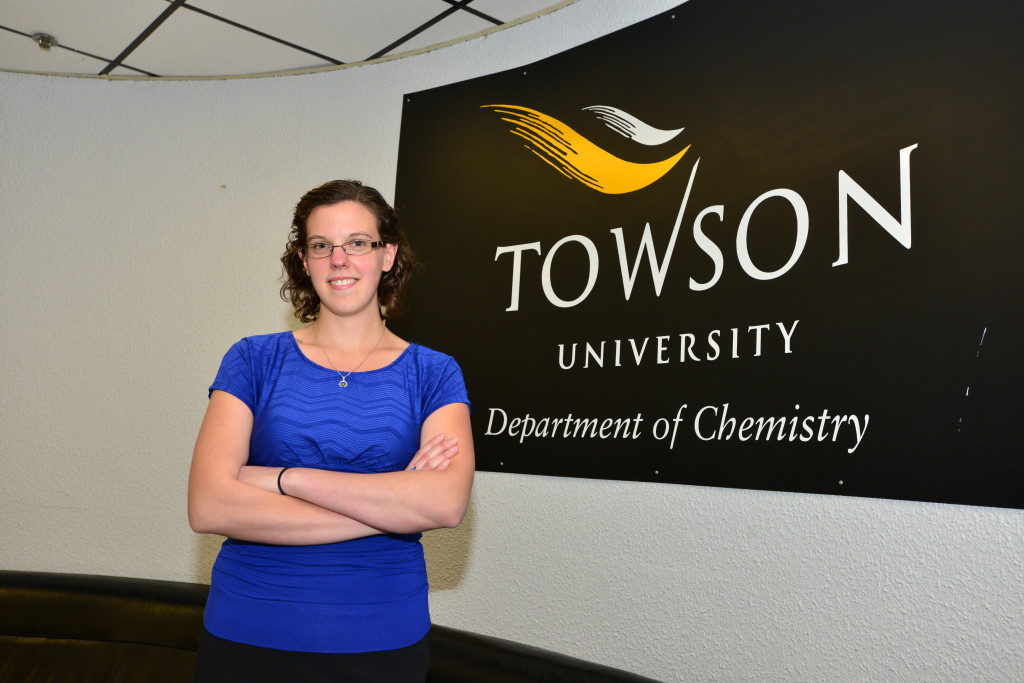 Alumna Erin Ehrlinger ‘11/’13 earned both of her degrees from Towson, so you could say she was doubly prepared to win the 2015 Society of Forensic Toxicologists (SOFT) Young Scientist of the Year award.
Alumna Erin Ehrlinger ‘11/’13 earned both of her degrees from Towson, so you could say she was doubly prepared to win the 2015 Society of Forensic Toxicologists (SOFT) Young Scientist of the Year award.
The award honors the bench-level scientist with five or fewer years of experience in the field of forensic toxicology. Applicants must complete a research project designed to advance the field; the winner presents his/her project at the annual SOFT meeting.
The Perry Hall, Maryland native earned her bachelor’s degree in forensic chemistry in 2011 and followed that with her master’s in forensic science in 2013. Shortly thereafter, she turned an internship at the Maryland Medical Examiner’s Office into a full-time position as a post-mortem assistant toxicologist.
Ehrlinger studied the distribution of Lamotrigine (marketed as Lamictal) in post-mortem samples of blood, urine, and tissue. The drug is an anti-epileptic and mood stabilizer that has been increasingly found in the last few years. Given that it can be abused, used to commit suicide, and can interact dangerously with a lot of other drugs (recreational or prescription), its increased presence is significant, according to Ehrlinger. She will present her findings at the conference in Atlanta this October
As a post-mortem assistant toxicologist, Ehrlinger has found many correlations to her work as a student at Towson.
“I took toxicology classes here both undergraduate and graduate,” she said. “Research classes specifically on doing research…the foundation I learned here. I had publications while I was here, so that has helped poster presentations that I have a lot of here [at the ME]. I help my coworkers put those together because of my experience here [at Towson University]. Some of the older toxicologists didn’t have forensic science as a degree [when they were in school], so they didn’t actually have that experience.”
In her work at the ME’s office, Ehrlinger does quality control management. She is also able to do acid testing.
“All of the acids [testing] I can do – screening and quantitation for basic drugs, acidic drugs, alcohol, CO2, opiates…” she noted. “That’s extracting the drugs from the post-mortem specimen, analyzing them on an instrument and then processing the data.”
